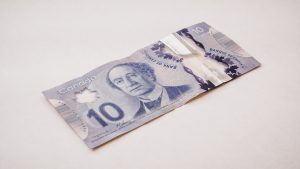Forex trading is an exciting and potentially profitable activity, but it also comes with tax reporting requirements. If you’re a forex trader, you’ll need to report your trades on your taxes. This can be a daunting task, but with a little guidance, you’ll be able to navigate the process with ease.
Here’s a step-by-step guide on how to report forex trades on taxes:
1. Determine your tax status
Before you start reporting your forex trades on your taxes, you need to determine your tax status. This will depend on whether you’re a trader or an investor. If you’re a trader, you’ll report your forex trades as business income, which means you’ll be subject to self-employment tax. If you’re an investor, you’ll report your forex trades as capital gains or losses. This means you’ll pay taxes on any gains you make and can offset those gains with any losses.
2. Keep accurate records
Keeping accurate records is essential when it comes to reporting your forex trades on taxes. You need to keep track of all your trades, including the date, time, currency pair, and the amount of money you made or lost. You should also keep track of any fees or commissions you paid to your broker.
3. Determine your gains and losses
Once you’ve kept accurate records of all your forex trades, you need to determine your gains and losses. This can be a complicated process, especially if you’ve made a lot of trades. You’ll need to calculate your gains and losses for each individual trade and then add them up to determine your total gains and losses for the year.
4. Fill out the necessary tax forms
Once you’ve determined your gains and losses, you’ll need to fill out the necessary tax forms. If you’re a trader, you’ll need to fill out Form 1040 and Schedule C. If you’re an investor, you’ll need to fill out Form 8949 and Schedule D.
5. Pay your taxes
Finally, you’ll need to pay your taxes. If you’re a trader, you’ll need to pay self-employment tax on your net income. If you’re an investor, you’ll need to pay capital gains tax on any gains you made. You can offset your gains with any losses you incurred.
In conclusion, reporting forex trades on taxes can be a complicated process, but it’s essential if you want to comply with tax laws and avoid penalties. The key is to keep accurate records and determine your tax status. Once you’ve done that, you can fill out the necessary tax forms and pay your taxes. If you’re unsure about how to report your forex trades on taxes, it’s always a good idea to consult with a tax professional.





